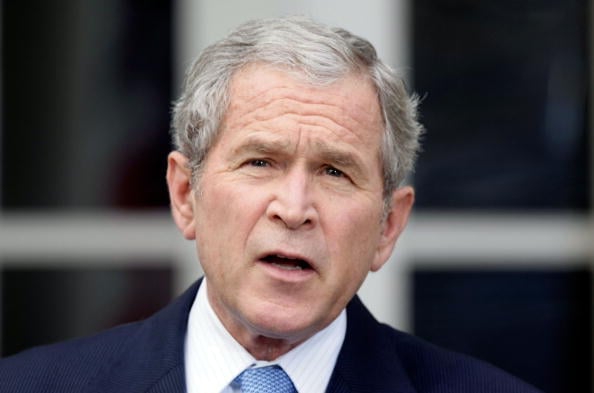George W. Bush at a Glance
- Categories: Politicians, Politicians > Presidents
- Net Worth: $50 Million
- Birthdate: Jul 6, 1946 (78 years old)
- Birthplace: New Haven
- Gender: Male
- Profession: Politician, Businessperson, Pilot, Author, Public speaker, Actor
- Nationality: United States of America
- Height: 5 ft 11 in (1.82 m)
What is George W. Bush’s Net Worth? Unveiling the Wealth of the 43rd President
George W. Bush, the 43rd President of the United States, is a figure whose life and career have been marked by significant achievements, controversial decisions, and a lasting impact on American and global politics. Beyond his political career, Bush has also been involved in various business ventures, contributing to his overall net worth. This article delves into the details of George W. Bush’s net worth, providing insights into his financial background, diverse business interests, and the key events that shaped his life.
Early Life and Education
George W. Bush was born on July 6, 1946, in New Haven, Connecticut. His father, George H.W. Bush, was studying at Yale University at the time. Raised alongside four siblings, including Jeb Bush, George W. Bush grew up in a politically active family. His grandfather, Prescott Bush, served as a Senator from Connecticut, setting the stage for a legacy of public service.
Bush attended prestigious prep schools before enrolling at Yale University, where he studied history and was involved in various extracurricular activities, including cheerleading and rugby. He later attended Harvard Business School, earning an MBA, a distinction held by no other U.S. president. Although his academic record was not stellar, his business acumen played a key role in his future success.

Alex Wong/Getty Images
Military Service and the Vietnam War Era
During the Vietnam War era, George W. Bush served in the Texas Air National Guard. While he logged flight hours and participated in drills, he did not see active combat. His military service has been a subject of debate, particularly during his political campaigns, with questions raised about his attendance records. Despite this, he received an honorable discharge after fulfilling his obligations.
Oil Ventures: Bush’s Business Beginnings
Following his MBA from Harvard, Bush entered the oil industry. In 1977, he founded Arbusto Energy, which later became Bush Exploration. He navigated the volatile oil market for several years, facing accusations of insider trading along the way. He was involved in companies like Spectrum 7 and HKN, Inc., serving in leadership roles. These early business ventures provided him with experience and capital, laying the groundwork for his later financial successes.
The Texas Rangers: A Profitable Venture
One of George W. Bush’s most lucrative investments was his involvement with the Texas Rangers baseball team. In 1989, he led a group of investors in acquiring the MLB franchise for $86 million. His personal investment was $500,000, which gave him approximately 1.8% ownership. To secure the deal, he borrowed a significant portion of the funds and was later gifted an additional 10% stake due to his celebrity status and involvement in getting the deal done.
Under Bush’s leadership, the team saw the construction of a new stadium, financed partly by taxpayer subsidies. As managing partner, Bush was actively involved in the team’s activities and attended games. He stepped down from this role when he was elected Governor of Texas in 1994. In 1998, Tom Hicks purchased the Rangers for $250 million, resulting in a $15 million profit for Bush from his stake in the team.

(Photo by Roger L. Wollenberg-Pool/Getty Images)
From Texas Governor to the White House
George W. Bush’s political career began in 1978 when he ran for the House of Representatives, though he was unsuccessful in his first attempt. He later assisted his father in his campaigns, gaining experience in the political arena. In 1994, he successfully ran for Governor of Texas, winning with 53% of the vote. During his time as governor, he implemented tax cuts, education reforms, and helped Texas become a leading state in wind-generated electricity.
In 2000, after being re-elected as governor, Bush sought the Republican presidential nomination. He selected Dick Cheney as his running mate and won the nomination, eventually defeating Al Gore in a closely contested election that was ultimately decided by the Supreme Court.

Mike Stone/Getty Images
The Bush Presidency: Key Events and Policies
George W. Bush’s presidency, from January 2001 to January 2009, was largely defined by the September 11th terrorist attacks. The attacks led to significant changes in U.S. security and foreign policy, including the launch of the

